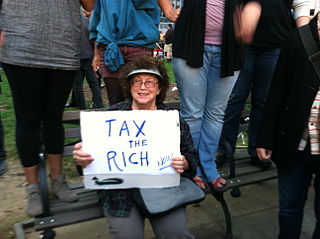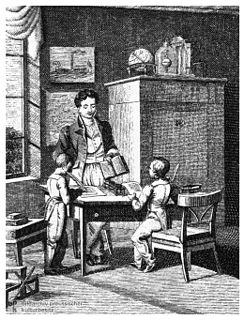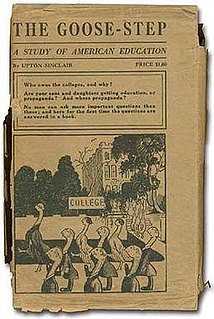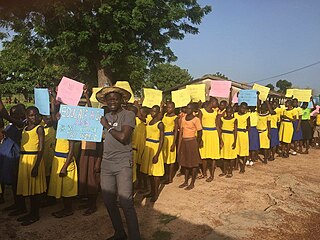 W
WThe sociology of education is the study of how public institutions and individual experiences affect education and its outcomes. It is mostly concerned with the public schooling systems of modern industrial societies, including the expansion of higher, further, adult, and continuing education.
 W
WJean Anyon, was an American critical thinker and researcher in education, a professor in the Doctoral Program in Urban Education at The Graduate Center of The City University of New York, and a civil rights and social activist.
 W
WBildungsbürgertum is a social class that emerged in mid-18th century Germany as an educated class of the bourgeoisie with an educational ideal based on idealistic values and classical antiquity.
 W
WThe Goose-step: A Study of American Education is a book, published in 1923, by the American novelist and muckraking journalist Upton Sinclair. It is an investigation into the consequences of plutocratic capitalist control of American colleges and universities. Sinclair writes, “Our educational system is not a public service, but an instrument of special privilege; its purpose is not to further the welfare of mankind, but merely to keep America capitalist." (p. 18)
 W
WSchooling in Capitalist America: Educational Reform and the Contradictions of Economic Life is a 1976 book by economists Samuel Bowles and Herbert Gintis. Widely considered a groundbreaking work in sociology of education, it argues the "correspondence principle" explains how the internal organization of schools corresponds to the internal organisation of the capitalist workforce in its structures, norms, and values. For example, the authors assert the hierarchy system in schools reflects the structure of the labour market, with the head teacher as the managing director, pupils fall lower down in the hierarchy. Wearing uniforms and discipline are promoted among students from working class, as it would be in the workplace for lower levels employees. Education provides knowledge of how to interact in the workplace and gives direct preparation for entry into the labour market.
 W
WSummerhill: A Radical Approach to Child Rearing is a book about the English boarding school Summerhill School by its headmaster A. S. Neill. It is known for introducing his ideas to the American public. It was published in America on November 7, 1960, by the Hart Publishing Company and later revised as Summerhill School: A New View of Childhood in 1993. Its contents are a repackaged collection from four of Neill's previous works. The foreword was written by psychoanalyst Erich Fromm, who distinguished between authoritarian coercion and Summerhill.
 W
WUniversal access to education is the ability of all people to have equal opportunity in education, regardless of their social class, race, gender, sexuality, ethnic background or physical and mental disabilities. The term is used both in college admission for the middle and lower classes, and in assistive technology for the disabled. Some critics feel that this practice in higher education, as opposed to a strict meritocracy, causes lower academic standards. In order to facilitate the access of education to all, countries have right to education.